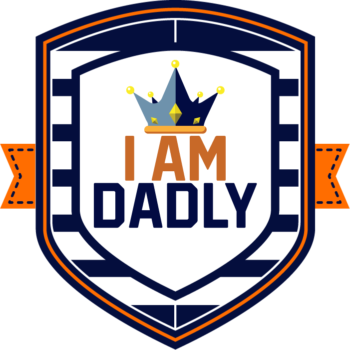
Katie Arnold of Outside Magazine wrote an interesting piece on the pressure to enlist kids in competitive sports, even placing four-year-olds on the soccer field. Doing so may be a more harmful decision than you realize. Her article is below:
Earlier this fall, my husband and I wrestled with the question of whether or not to sign our girls, ages five and seven, up for organized sports. On one hand, we want to expose them to the benefits of team play. On the other, we were reluctant to cram our schedule with twice-weekly practices and Saturday morning games when there are so many family adventures calling, like hiking and mountain biking, that we could all do together.
Not so long ago, youth team sports used to start in late elementary school or even middle school, but now it’s standard to see soccer teams for the under-five set and pre-school ice hockey leagues. By seven or eight, kids are already being funneled into highly competitive travel teams, many of which play all year. While it’s important to develop a lifelong habit of physical activity early in life, starting so young and specializing too soon has its risks. It makes kids more prone to burnout, injury, and inactivity later in life, according to the Changing The Game Project, an initiative designed to bring balance back to the hyper-competitive world of youth sports.
Still, with age four becoming the new norm for participating in team sports, I was afraid that if our daughter didn’t start early, she’d miss out and fall behind. It sounds neurotic, but I’m not alone. “You get sucked into thinking that if you don’t get your kid on a T-ball team when he’s five, he’s going to flunk out of school and end up living in a ditch,” says Toby Brooks, a father of two and an associate professor of athletic training at Texas Tech’s Health Science Center.
So each year my husband and I signed our daughter up and sat on the sidelines, watching her lurch around the field, having no clue where to run or what to do with the ball should she accidentally get near it (because mostly she seemed to avoid it). She’s always been a physically competent child—skiing, swimming, and bike-riding came naturally to her at a young age—so we kept waiting for the breakthrough. But after three years of lackadaisical play, we began to think that maybe soccer just wasn’t her sport.
Turns out we were wrong. Here’s the thing no one talks about: Five-year-olds are supposed to suck at soccer, and most other sports for that matter. At such a young age, they’re not physically or psychologically capable of understanding what they’re supposed to do on the field or how to make their bodies do it. According to Paul Stricker, a pediatric sports medicine specialist at Scripps Clinic, in California, “Sports skill development follows four tracts: physical, physiological, visual, and psychological, all of which develop at different speeds and to different degrees over time. They also cannot be sped up by more practice or pressure from adults.”
“One of the big myths of youth sports is that kids have to do specialized, organized sports training at younger ages if they want to be good when they get older,” says O’Sullivan. “But except in figure skating and girls’ gymnastics, there’s no science that backs this up. What the science shows is that, prior to age 12, they should be learning fundamental movement skills like running, jumping, falling, and skipping that get developed in free play. It’s only starting at around age nine that you focus on sport-specific skills.”
A child’s ability to track an object in flight—a baseball, for example—generally doesn’t kick in until between the ages of ten and 12. “It’s a mix of experience and ocular development,” says John O’Sullivan, founder of Changing the Game Project. The spatial awareness that enables a child to see the gaps on a soccer field typically develops between ages eight and ten. “If you invited a bunch of six-year-olds to your house and threw one ball in the backyard, they’ll all tumble onto it,” O’Sullivan says. “They don’t have the capacity to analyze their environment. They are very ego-centric. But this is okay. They’re on the right developmental path.” Around age ten, kids begin to be able to understand basic tactics and see each other in relation to other players on the field and experience leaps in speed, coordination, and agility. Strength and amplitude follow.
All of this makes sense, of course. But in our rush to keep up with the frenetic pace of childhood sports, it’s easy to let our own ambition get ahead of our kids’ natural physical development. “One of the big myths of youth sports is that kids have to do specialized, organized sports training at younger ages if they want to be good when they get older,” says O’Sullivan. “But except in figure skating and girls’ gymnastics, there’s no science that backs this up. What the science shows is that, prior to age 12, they should be learning fundamental movement skills like running, jumping, falling, and skipping that get developed in free play. It’s only starting at around age nine that you focus on sport-specific skills.”
Does this mean you shouldn’t sign your kid up for little league when he’s six? Not necessarily. If your child is eager to play and the sport fits into the family schedule without creating extra stressors, go for it. Early introduction to an active lifestyle has been proven to help kids stay active into adulthood. You just need to be smart—and make sure you’re doing it for the right reasons: your child’s physical and emotional wellbeing, not your own ego. Here’s how:
1. Make sure your young athlete has a balanced diet of physical activities. Don’t push her to specialize in a single, year-round sport until she’s at least 12 and help her select sports that have lots of cross-over skills. Soccer helps develop endurance and teaches cutting and deceleration, whereas baseball and softball focus mostly on concentric strength and feature a lot of standing around. (Brooks once clocked the amount of time his daughter spent doing moderate-to-high output activity during a 12-hour softball tournament. It was less than one minute). Recreational gymnastics is one of the best cross-over activities for teaching essential skills, like jumping and landing and balance. “It’s what physical education used to be,” says Brooks, who cautions against competitive gymnastics, as the college athletes he coached were “the most broken down, beat up people” he’s ever worked with.
2. Try to keep it simple to one or two sports per season. “It sets a dangerous precedent to be running around from one sport to the next six or seven days a week,” says O’Sullivan. This leaves ample time for free-play, which is all too rare and yet essential to fundamental skills, or physical literacy. “When you have birthday parties or friends over, tell them to go out and play,” suggests O’Sullivan. “They’ll spend as much time trying to figure out the rules of the game as they do playing the game, and that’s part of being self-directed.”
3. Be patient. “Let’s remember what they’re capable of,” O’Sullivan advises. “We look at our kids struggling out there and think, ‘Oh my god, what’s wrong with my DNA?’ There’s nothing wrong with it, they’re just developing at their own pace.”
4. Lastly, if you do decide to wait on that U-5 hockey squad, repeat after me: DO NOT WORRY. It’s never too late to start, and your child may benefit more from starting later. My daughter is seven now, and this season, soccer finally clicked for her. She can dribble the ball the length of the field, she can kick and receive passes, and she even almost scored a goal. But the truth is, there’s little noticeable difference between her and her seven-year-old friend, who just started playing this season. Could we have skipped the past three years and goofed around outside together instead? Absolutely.
But it’s never too late for that, either.





